Iranian Hijab Activist’s Prison Sentence Enforced
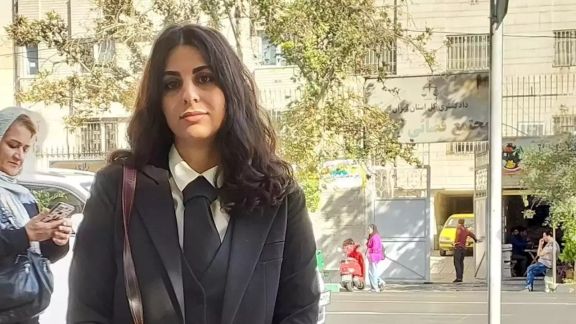
Iranian hijab activist Sepideh Rashno has had her almost four year prison sentence enforced along with a travel ban.

Iranian hijab activist Sepideh Rashno has had her almost four year prison sentence enforced along with a travel ban.
Rashno was arrested in July 2022 after a viral video depicted her altercation with a woman who verbally assaulted her for being unveiled on public transport.
Subsequently, she was coerced into a televised confession, visibly bruised and showing signs of torture. Reports from the US-based Human Rights Activists News Agency indicated that she had suffered internal bleeding shortly after her arrest, during which she was still wearing her compulsory hijab.
Following approximately 40 days of detention in Tehran’s Evin prison, Rashno was released on bail, for a significant sum believed to be $27,000.
Initially convicted of charges including "association and collusion with the intent of endangering national security" and "propaganda against the Islamic Republic," Rashno received a five-year suspended prison sentence. However, she faced additional accusations of "promoting moral corruption" and "propaganda against the regime" after posting a photo without a hijab on social media.
Rashno disclosed that her recent sentence, comprising three years and seven months for the initial protest incident, along with four months for announcing a university's suspension, and a fine of 15 million rials (about 30 USD) for attending court without compulsory clothing, has been enforced.
Commenting on her travel ban, Rashno remarked, "Of course, [this is] a travel ban for someone who has no intention of leaving."
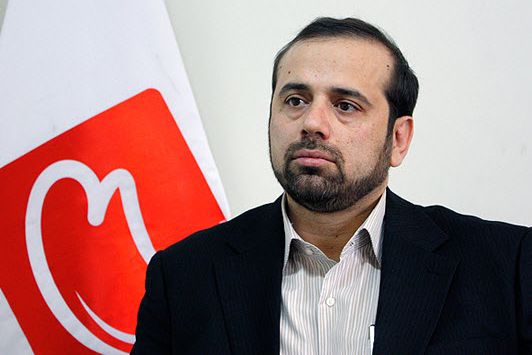
Kioumars Hashemi, the Iranian Minister of Sports and Youth, has appointed a security official as the new CEO of the Sports Facilities Development and Maintenance Company.
Hossein Tala's appointment has sparked criticism due to his involvement in suppressing the 2009 protests as governor of Tehran. The protests erupted following the announcement of Mahmoud Ahmadinejad's victory in the presidential elections, amid widespread allegations of electoral irregularities.
His actions during the protests and his alleged involvement in the suppression of dissent led to sanctions imposed by the European Union in 2011.
Before his tenure as governor, Tala held a position as the deputy political officer at the Tharallah headquarters of the Islamic Revolutionary Guard Corps. The Tharallah headquarters played a pivotal role in quelling protests and uprisings in Tehran.
The 2009 protests, also known as the Green Movement, marked a significant moment in the country's recent history. Sparked by allegations of election fraud following the controversial re-election of President Mahmoud Ahmadinejad, masses of Iranians took to the streets to voice their dissatisfaction with the government.
The protests, which began peacefully, quickly escalated into violent clashes between demonstrators and security forces, resulting in numerous deaths and arrests. The Green Movement represented a broad coalition of Iranians from various socio-economic backgrounds, united in their demand for political reform, transparency, and respect for human rights.
Despite the government's harsh crackdown on dissent, the 2009 protests symbolized a growing desire for change among Iranians disillusioned with the ruling regime. The use of social media platforms like Twitter and Facebook played a crucial role in organizing and spreading information about the protests, despite government attempts to suppress communication channels.

Iran’s exiled prince has blamed the West’s lenient policies toward Tehran for escalating tensions amid a simmering proxy war.
The proxies continue to operate in the region as a result of “an absence of strong leadership in the West and a weakness that is attempting some kind of appeasement of the Islamic regime in Iran,” Reza Pahlavi said in an interview with Jewish News Syndicate.
Referring to Iran’s involvement in radicalism, terrorism and the nuclear threat, he warned against the regional and global consequences of allowing the regime to continue to exist.
“The enemy, the Islamic regime in Iran, is committed to the max to do their evil deeds. The only way to counter that is to be united, to work together and to solve the problem,” Pahlavi remarked.
Citing Hamas’ October 7 onslaught on Israel, Iran’s exiled prince stressed that the international community needs to confront directly “the eye of the octopus,” referring to the Iranian regime.
“Hamas, Hezbollah and the Houthis are the tentacles of this regime that have been operating for more than four decades internationally, beyond our own region. The only way to put an end to all of this is to eliminate the source of the problems,” he went on to say.
Though Iran has avoided any direct military involvement in the Israel-Hamas conflict, the regime has used its proxy groups to attack Israeli and American targets in the Middle East.
Pahlavi called the IRGC “the de facto paramilitary mafia” which exerts its control over all aspects in Iran, urging Europe to designate it as a terrorist organization.
“That is very important because this cripples the regime and its tentacles even more,” he noted.

A recent mandate requiring advertising licenses for social media accounts boasting over 5,000 followers in Iran has raised concerns over government control and taxation motives.
Abbas Mohammadian, the Islamic guidance ministry’s media and advertisement deputy defended the requirement as a measure to safeguard legal rights and ensure advertising compliance with regulations. However, skepticism persists regarding its broader implications, including identification of influencers and taxation of their earnings.
The regulation, applicable to both foreign and domestic social media platforms, has sparked criticism, especially in light of Iran blocking most major social media platforms, such as X, Facebook and Youtube.
“What license? All [foreign] social media applications are blocked … What are you going to do if they don’t [acquire one]?” a tweet asked the authorities.
Many suspect that besides controlling content of advertisements and ensuring they do not break the rules of Sharia such as the rules for hijab, the requirement is meant to be used for identifying bloggers and influencers as well as their content creators, photographers, models, and admins. Some of these individuals have high earnings for which they may not be paying taxes, because they are not officially employed.
“Who has given you the right to tax [Instagram] bloggers and require a license for their activities when you are the ones that have blocked Instagram,” another tweet told authorities.
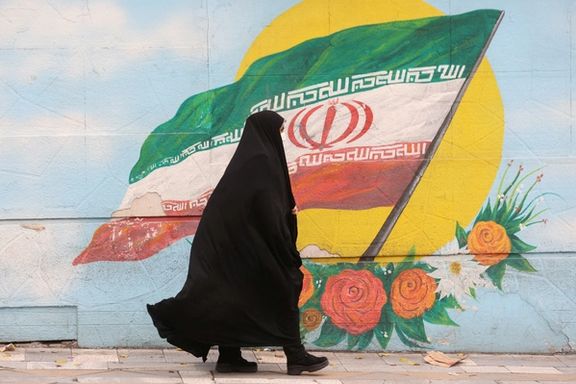
All major social networks including Instagram, Facebook, X (former Twitter), YouTube, Telegram and WhatsApp are blocked in Iran, but controls are readily sidestepped by VPNs (virtual private networks) and anti-filtering software. Nearly every Iranian with a smartphone has installed anti-filtering software that allows access to filtered applications and websites.
Instagram is the second most popular social platform in Iran after Telegram with over forty million users. Both platforms are used by millions of small and home-based businesses for marketing.
These small businesses, particularly those run from homes by women or small farms in rural areas, heavily rely on Instagram for advertising their products -- anything from handwoven rugs to herbs and vegetables grown in their rural gardens and duck eggs. They also use WhatsApp, through VPN, for communication with potential customers. Many of these small businesses that exponentially grew after the Covid pandemic have thousands of followers now.
A survey conducted by the state-run Iranian Students Polling Agency (ISPA) in 2021 found that 73.6 percent of Iranians over the age of 18 use social media, including WhatsApp (64.1), Instagram (45.3), and Telegram (36.3). Only 4.8 percent reported that they use domestically developed platforms.
The ban on Instagram, the only social platform not blocked by authorities until then, was announced on September 21, 2022, a few days after anti-government protests sparked by the death of 22-year-old Mahsa Amini in the custody of morality police engulfed the country.
Despite restrictions for ordinary citizens, Iran’s Supreme Leader Ali Khamenei had multiple accounts on Instagram and Twitter until last week when Meta, the owner of Instagram and Facebook, removed his accounts on these platforms. Meta said this was based on its policy of denying its platforms to organizations and individuals that “proclaim a violent mission or are engaged in violence”.
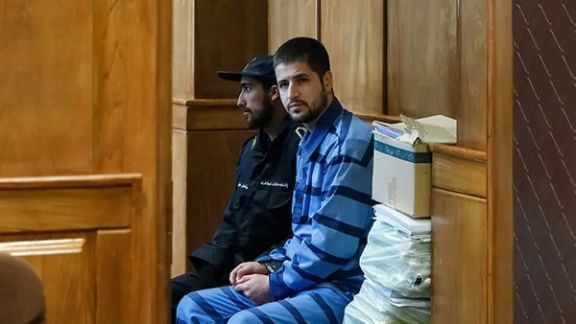
The lawyer representing Mohammad Ghobadloo, a protester executed in connection with the 2022 protests in Iran, has been summoned to court for criticizing the handling of his client's case.
Mahdokht Damghanpour, one of Ghobadloo's attorneys, was summoned to the Culture and Media Court after voicing numerous objections to the proceedings of her client's case.
In an interview with Didban Iran, Damghanpour previously stated that her client was executed despite requests from medical professionals and 50 psychiatrists to halt the execution.
She said her client was executed without notifying his attorneys, examining his mental health status again as per the Chief Justice's orders, informing his family, or granting him a final visit.
Ghobadloo was detained during the uprising which followed the death in morality-police custody of Mahsa Amini in September 2022. He was charged with running over a police officer with his car and causing his death, as well as other charges including "corruption on earth" and "waging war against God" in another case.
In a recent interview, Damghanpour claimed Ghobadloo was subjected to beatings and forced to confess before his execution last month.
So far, at least nine protesters have been executed in connection with the Women, Life, Freedom protests.
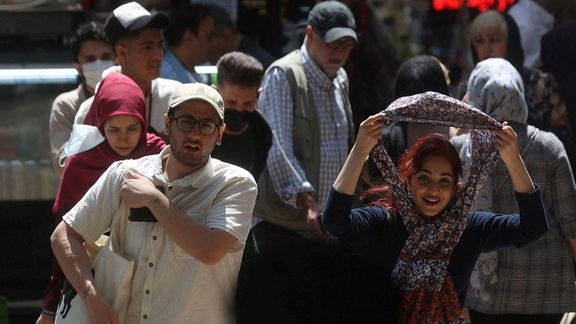
Amnesty International has issued a call to Iranian women who have faced persecution due to Iran's mandatory hijab laws, urging them to share their accounts with the rights group.
The call, published on the organization's Telegram channel in Farsi on Monday, highlights the systemic harassment and persecution experienced by women in Iran, with particular emphasis on the issuance and execution of flogging and imprisonment sentences.
"The real dimensions of the organized assault on women's rights, particularly the issuance and execution of flogging and imprisonment sentences against them, remain hidden," added the announcement by Amnesty.
The Iranian government's continued enforcement of mandatory hijab laws, despite nationwide protests triggered by the killing of Mahsa Amini in the custody of morality-police, has drawn international condemnation. The methods employed, including seizing cars and imposing widespread social deprivation, underscore the severity of the situation.
Amnesty's call emphasizes the importance of shedding light on such issues by requesting affected women, along with their relatives, lawyers, and other witnesses to share relevant documents such as court rulings and evidence of administrative actions by February 27.
Narges Mohammadi, a prominent human rights activist imprisoned in Iran and recipient of the 2023 Nobel Peace Prize, last month called upon the United Nations Secretary-General to recognize sexual and gender apartheid as a crime against humanity. Mohammadi's plea, articulated in a letter from Evin Prison published on January 26, drew parallels between this form of oppression and racial apartheid, urging international action.
Meanwhile, the Iranian government's efforts to reinforce hijab enforcement include attempts to pass a law entitled "Chastity and Hijab,"which imposes severe punishments on women who resist compliance. Mohammad Bagher Ghalibaf, the Speaker of the Parliament, has announced that the bill's amendments are in their final stages, indicating imminent communication to the government following approval by the Guardian Council.